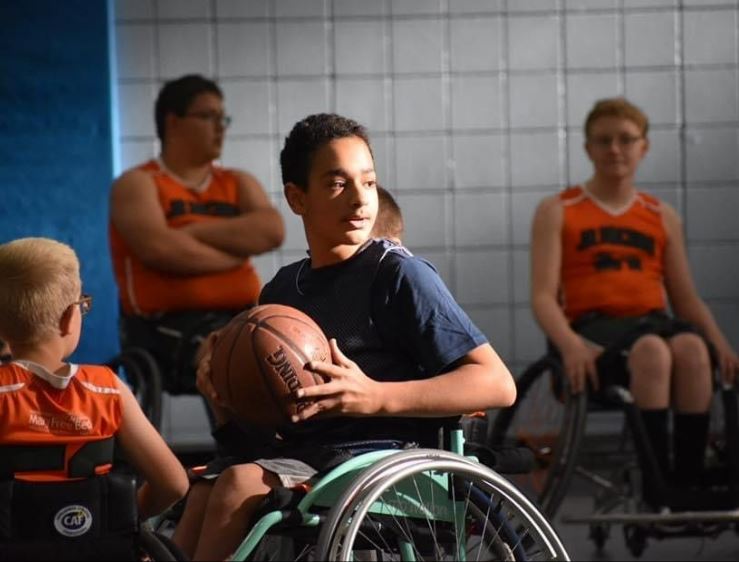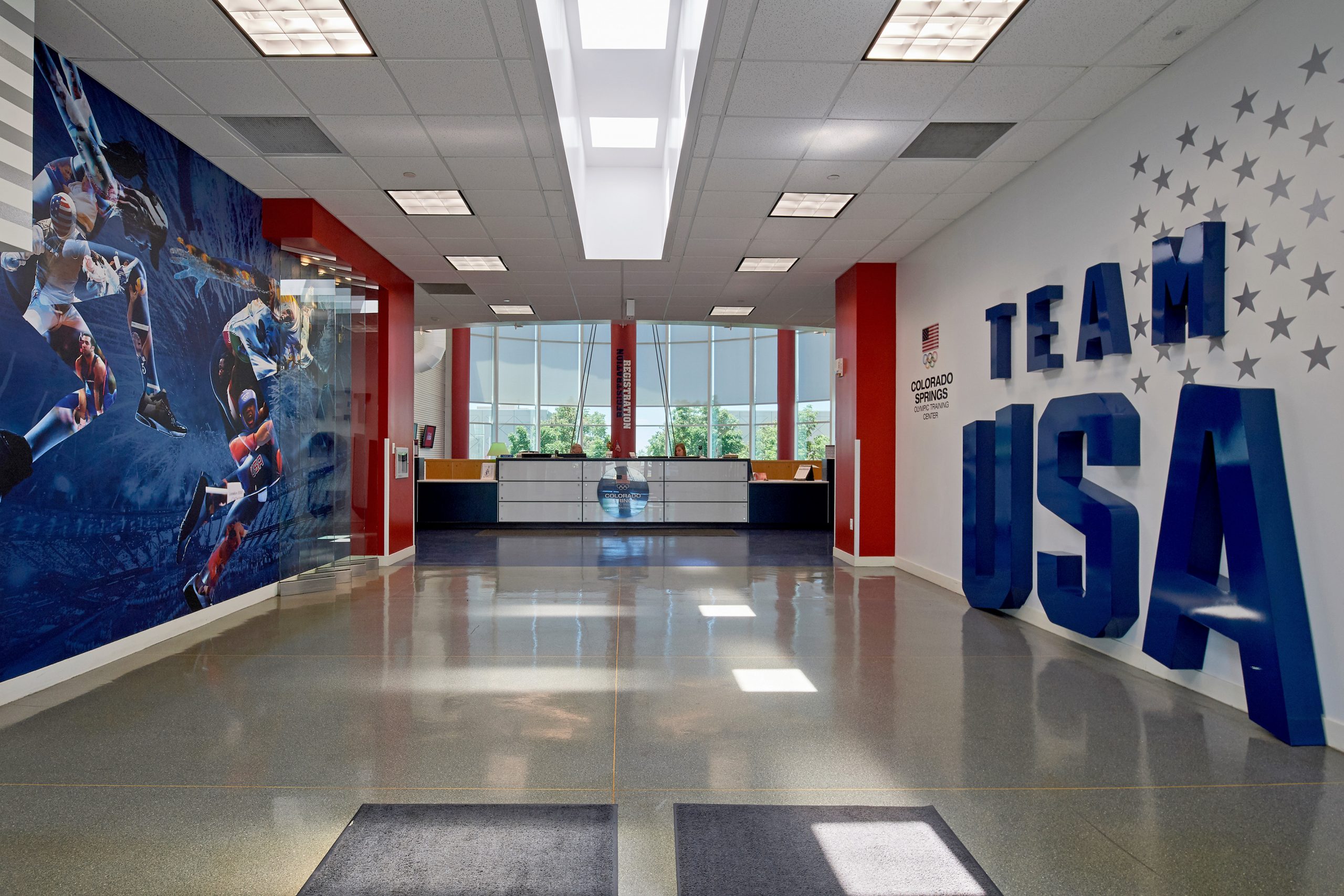U-M HPSSC, USOPC, and U-M Adaptive Sports & Fitness Project
This project consist of two components, an Independent Study and Hands-on Experiential Practice. The opportunity is
brought to you in partnership between the U-M Human Performance & Sport Science Center
(HPSSC), the United States Olympic & Paralympic Committee (USOPC) and U-M Adaptive
Sports & Fitness.

The Project Mission
To provide a transformative fellowship experience that equips emerging talent with the skills, knowledge, and networks needed to thrive in their career. Through meaningful collaborations and hands-on opportunities, we aim to bridge the gap between academia and sport.
Project Overview
The project of using Inertial Measurement Units (IMUs) to study the movement patterns of athletes in wheelchair sports began in fall 2024 with our first Fellow, Alex Begley (MVS MS student). The winter 2025 fellowship is a continuation of employing IMUs, low-profile sensors that measure accelerations and rotational movements in space. The IMUs are used to independently measure speeds and distances of objects without the need for cameras or other positional measurements.
The fellow’s mentors will support the fellow in the academic component and within the environment of the wheelchair basketball athletes. The fellow will be guided in relationship building as well as through a literature review and connection to supportive resources, to help them foster an understanding of the sport and the sensors and their function. The fellow will be provided information that describes specific implementation and processing strategies for wheelchair sports in the independent study component of this project. Support will be provided so that the fellow is able to familiarize themselves with the technology, review of the prior fellow’s handbook and informational materials for the recording activities, processing of sensor data, and implementing the device on a wheelchair. The student will be also be supported in the analysis of the collected sensor data.
The fellow would ideally have experience with writing code (i.e., MATLAB, Python, and/or R) and an interest in sports measurement technology.
Project Mentorship
- Dr. Ken Kozloff, professor, co-director of HPSSC
- Dr. Geoff Burns, adjunct assistant professor, and USOPC Sport Physiologist
- Jessica Wynne, Adapative Sports & Fitness, Wheelchair Basketball Head Coach.
Fellowship terms
The fellowship consists of two components, a W’25 independent study under the direction of Dr. Geoff Burns concurrently with W’25 hands-on experiential practice part of the project with Adaptive Sports & Fitness wheelchair basketball, their professional staff, and Dr. Geoff Burns. There will be an opportunity to visit USOPC wheelchair basketball team staff and athletes depending on schedule availability of Dr. Burns and the fellow.
Successful completion of the winter term 2025 project goals provides an option for summer employment (10-15 hours per week) during summer 2025 for project continuation.
These items will be further outlined and stipulated per the independent study and hands-on component contract with HPSSC, USOPC, and Adaptive Sports & Fitness.
Criteria to qualify
- GPA 3.0 or higher
- Interest in low-profile sensors
- Interest in adaptive and para sport
- Maintain student confidentiality; read and understand Family Education Rights and Privacy Act (FERPA)
- Able to enroll for winter 2025 independent study
- Should have experience writing code (e.g. MATLAB, Python, etc.)
Vision
Our vision is to nurture the next generation of talent, fostering innovation, diversity, and collaboration through building a robust talent pipeline. We aspire to create an inclusive and supportive environment that encourages personal growth, professional development, and a lifelong commitment to learning.
Timeline
Mid- to late January 2025
Submit application materials. We’ll begin to review applications as they are received by the application deadline of Monday, February 3, 2025.
January to early February 2025
HPSSC, USOPC, and Adaptive Sports & Fitness faculty and staff will complete the review of applications, conduct interviews and select a candidate
February 2025
Through W’25 the fellow begins the independent study and hands-on work as described.


Apply Today!
Following acceptance by an application process, fellows will participate in an independent study, hands-on experiential work with the wheelchair basketball staff and team, and a potential site visit to the USOPC Olympic and Paralympic Training Center (CSOPTC) in Colorado Springs, Colorado to meet with onsite project leads and further discuss the research goals for this project.
Fellows will enroll in a 3-unit independent study course for winter 2025 to conduct research as specified in the project description in adaptive sports based upon USOPC and Wheelchair basketball faculty and staff leads/research mentors.
*All participants will need to submit a cover letter, resume, and unofficial transcript as one pdf to be considered per the application instructions.
Intern Comments
Alex Begley (MVS MS, F’24)
I think that this opportunity itself is amazing, and it isn’t easy to describe how proud I am to be able to work on such a meaningful project. . The support I’ve received from all project members, HPSSC, USOPC, and the Wheelchair Basketball faculty and staff, has been beneficial and supportive.
I also wanted to add what a positive and encouraging environment the wheelchair basketball practices have been and how much they have made me feel like part of the team. Coach Jessica has been incredible with making everyone feel right at home.
This project is helping me support my future goals by teaching me how to work with large datasets to gain valuable insights on key performance indicators that we can then identify and look to improve through various training methodologies. This will prove useful to my future career in sport science as I will need to know how to identify and evaluate what metrics are of true importance to a given group of athletes and separate the value from the excess.